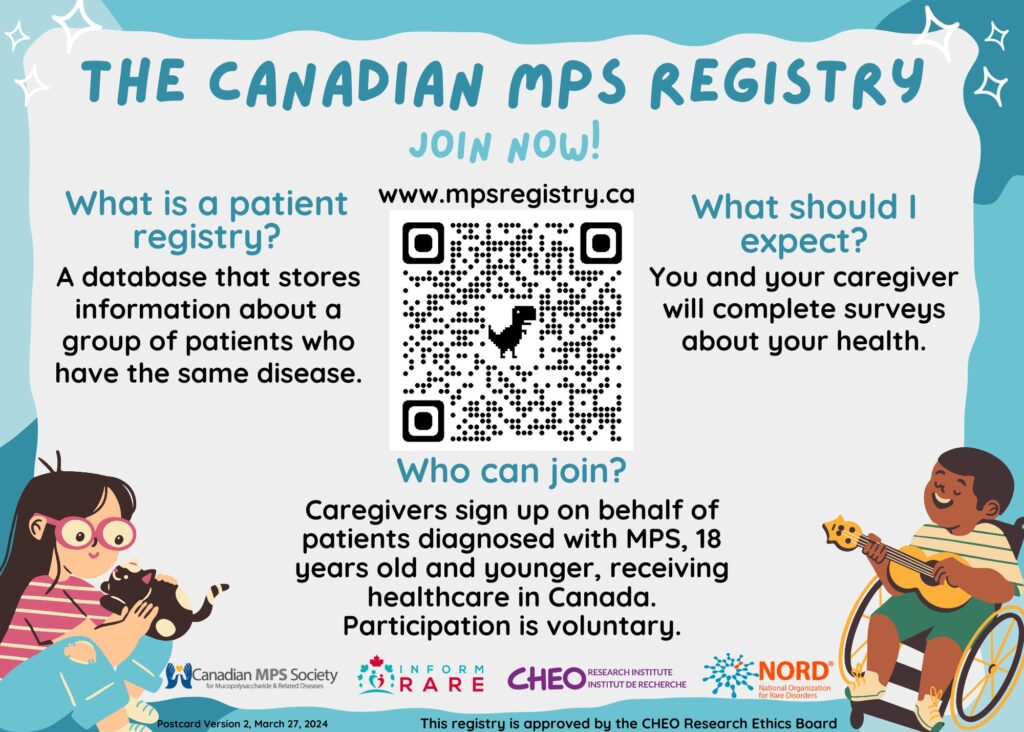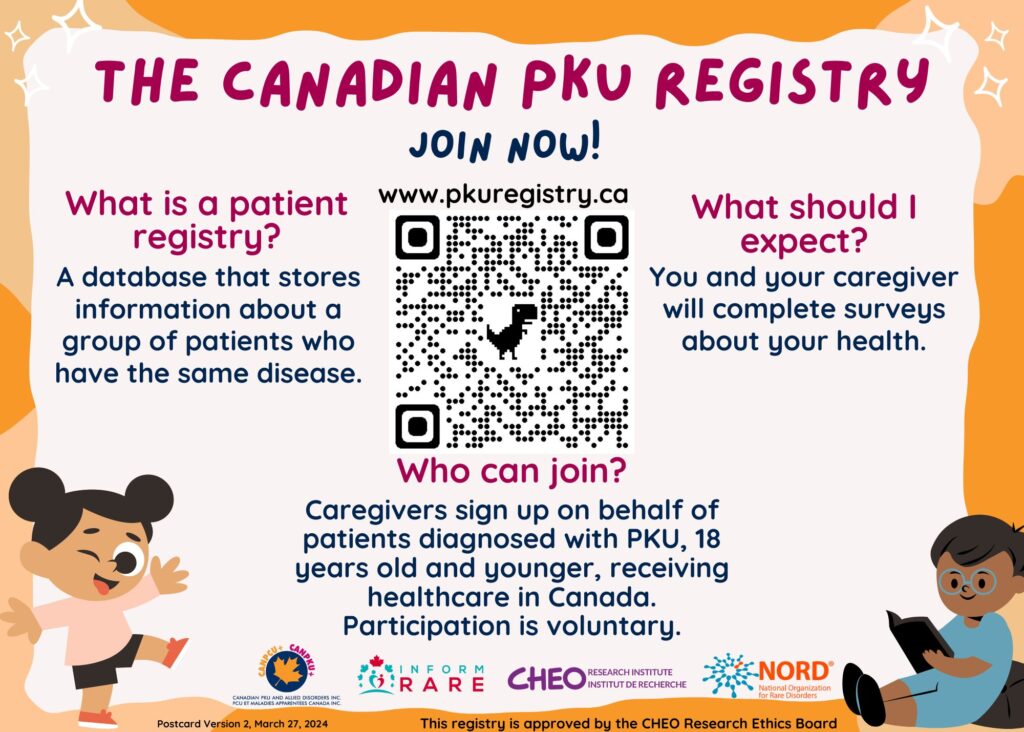Until now, no patient registries have existed in Canada for mucopolysaccharide (MPS) and phenylketonuria (PKU) – both rare, inherited metabolic diseases which result in developmental disabilities and other neurological problems.
Thanks to federal funding through the Canadian Institute of Health Research (CIHR), The Canadian MPS Registry and The Canadian PKU Registry were launched on May 2, 2024, at the Garrod Symposium in Ottawa. These registries are the first implementation of a National Organization for Rare Disorders (NORD) registry outside of the United States, built in close partnership with patients, clinicians, and researchers.
“To have rare disease drugs approved in Canada, we need to have Canadian clinical trials – these types of registries are critical to that process,” said Dr. Pranesh Chakraborty, Investigator at the CHEO Research Institute (CHEO RI) and Principal Investigator for the patient registries portion of the broader INFORM RARE project. “If companies can see how many people in Canada are impacted by a rare disease, it strengthens the case to bring important clinical trials to Canada.”
These registries will help document the natural history of MPS an PKU in Canada – allowing clinicians to further understand the experiences and priorities of Canadian patients/caregivers as they change over time. Patients/caregivers will also have access to their own data and group-level information about all participants, empowering families with what to expect with the rare disease and providing a shared experience to know they are not alone.
“This registry represents a crucial advancement in our efforts to understand and support individuals with MPS disorders. By consolidating data from across Canada, the registry will provide invaluable insights into the prevalence, progression, and management of MPS in pediatric patients. This initiative underscores our commitment to improving the lives of those affected by MPS and will serve as a cornerstone for future research and therapeutic developments. We are grateful for the collaboration with INFORM RARE and look forward to the positive impact this registry will have on our community,” said Kim Angel, Executive Director, Canadian MPS Society.
“We are thrilled by the launch of these registries which will move us forward in our mission to support families and professionals dealing with PKU and similar, rare, inherited metabolic disorders. This incredible advancement in data collection capabilities, functioning in both official languages and hosted on Canadian servers, is a significant step towards better understanding rare diseases and how they change over time for different patients. We are immensely grateful for our partnership with INFORM RARE and the opportunities it presents for changing the lives of those in our community affected by PKU,” said John Adams, CEO & Co-Founder, Canadian PKU and Allied Disorders.
“Rare disease research succeeds when as many patients as possible can participate, and we know that one-size patient registries do not fit all,” said NORD CEO, Pamela K. Gavin. “Patient registries need to account for the diversity of patient backgrounds and experiences as well as the diversity of regulations and requirements that must be met to ensure participation of both patients and researchers.”
These registries will also provide researchers a platform to invite patients and their caregivers to participate in research and will help to inform the development of future clinical trials in Canada – allowing Canadian researchers to lead the way in gathering real-world evidence through these registries, so we can invest funding in the right places and build capacity for future Canadian clinical trials.
The CHEO RI is the academic institution responsible for the research oversight of the PKU and MPS patient registries. Decision-making regarding these registries will be led by the PKU and MPS Patient Registries Steering Committees.
These registries have been developed in partnership with The Canadian MPS Society, Canadian PKU and Allied Disorders Inc. (CanPKU+), INFORM RARE research network, the CHEO RI, and NORD.


